Story of Seasons: Pioneers of Olive Town, the first brand-new Story of Seasons game in four years, is out on Nintendo Switch this month. I’ve been spending the past few weeks getting a feel for the pioneer lifestyle courtesy of XSEED and can tell that, even after a few seasons, things are only just getting started in Olive Town.
Instead of a big overview about the game (because that’s what full reviews are for), I put together a few of Pioneers of Olive Town’s best and not-so-hot standout features so far.
The Prize Crops
Life on the Frontier
Most SoS/Harvest Moon games share a common foundation. You start from scratch, clear your fields, and gradually develop your podunk farm into an agricultural mega-producer. PoOT is no different but puts heavy emphasis on “from scratch.”
Your farm is a wilderness of weeds, trees, and dilapidated buildings, and you only get a measly tent to live in at first. You craft almost everything important you’ll need on the farm, and there’s a definite by-the-bootstraps feel to proceedings.
Olive Town itself is much the same. Your goal is to transform the sleepy town into a bustling tourist destination, and you see and benefit from your hard work in tangible ways.
Pioneers’ organic progression system adds to this enterprising feeling. You unlock new crops by finding and shipping wild variants around your farm-forest. You’ll fix up farm buildings with materials you harvest and craft instead of just buying a barn outright, and the more you do, the more you raise your skill levels, which unlocks yet more activities and craftable items.
So Much Freedom
PoOT pairs all this opportunity with an equal amount of freedom in deciding what you want to do and how. Aside from customizing your farm layout however you wish, you can prioritize what you want to focus on and run with it.
I put off building a house, for example, because I funneled all my money and resources into high-selling crops and more maker machines than I have room for. However you want to build your farm is a viable path to success, and you’re rarely forced into doing any specific thing to move forward.
A Hard Day’s Work
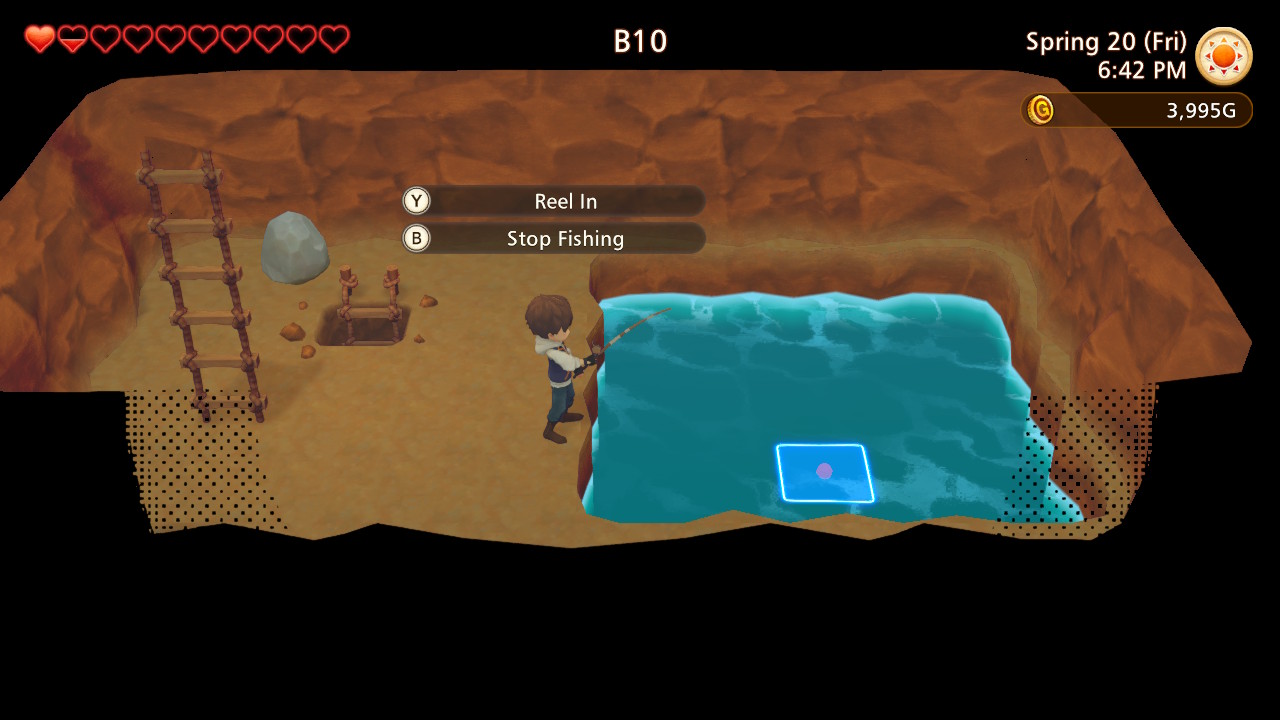
If it’s not already apparent, Pioneers of Olive Town is stuffed full of things to fill out each day with. Planning your routine even feels like breaking new ground because it’s not going to be the same as previous SoS games — and probably not the same as another player’s, depending on where you split your focus.
It’s refreshing, but above all, seeing your farm and town evolve almost every day as a direct result of your actions makes it all even more satisfying than usual, since your ultimate goal is much more than just watching that money counter climb ever higher.
What’s Not Ripe Enough Just Yet
Flat Characters
Pioneers of Olive Town’s characters don’t have much to say or do in your first few seasons, and you won’t see introductory events — or any events period — until you’ve raised their affection meter by one heart. PoOT ditches the series’ lovely 2D character portraits as well, so it’s harder to get a read on personalities for longer than I’d have liked.
Adding to the issue is a set of vague cues for likes and dislikes. Either everyone in Olive Town is so polite they won’t complain about getting garbage as presents, or the dialogue needs to be more specific.
Object Borders
This is a very specific issue that others might not even care about, but something in how the game treats object borders means you can’t put items such as fences or maker machines up against other objects.
There’s a gap between the fence and coop, for example, and the mayonnaise maker sits out about an inch from the building instead of butting up against it. It’s a small issue, but notable nonetheless for restricting some of that freedom to build how you want. That’s not to mention how it borked my farm layout in the early days, where space is limited by how many trees you can clear out in one day.
Representation
Don’t get me wrong, Pioneers of Olive Town incorporates diversity in representation much more effectively than most games. Still, there’s a nagging issue in character creation that’s left a sour taste. Despite throwing open the options for clothing, hair, and voices, you only get two overall looks for your character. You can have a feminine (cute) stance or a masculine (powerful) stance, an oddly restrictive and arbitrary choice in an otherwise open gender design.
—
My first few seasons in Pioneers of Olive Town have been about making my own farm and leaving my footprint in the wilderness more than getting to know people or feeling like part of a community. Signs indicate that’s likely to change as the year draws to a close, and I hope the characters spring to life a bit more.
Still, there’s no denying Pioneers of Olive Town is a big step in the right direction in revitalizing the series’ familiar systems and gameplay, and I’m eager to see how the rest of the game continues growing. Stay tuned for more in the coming weeks.

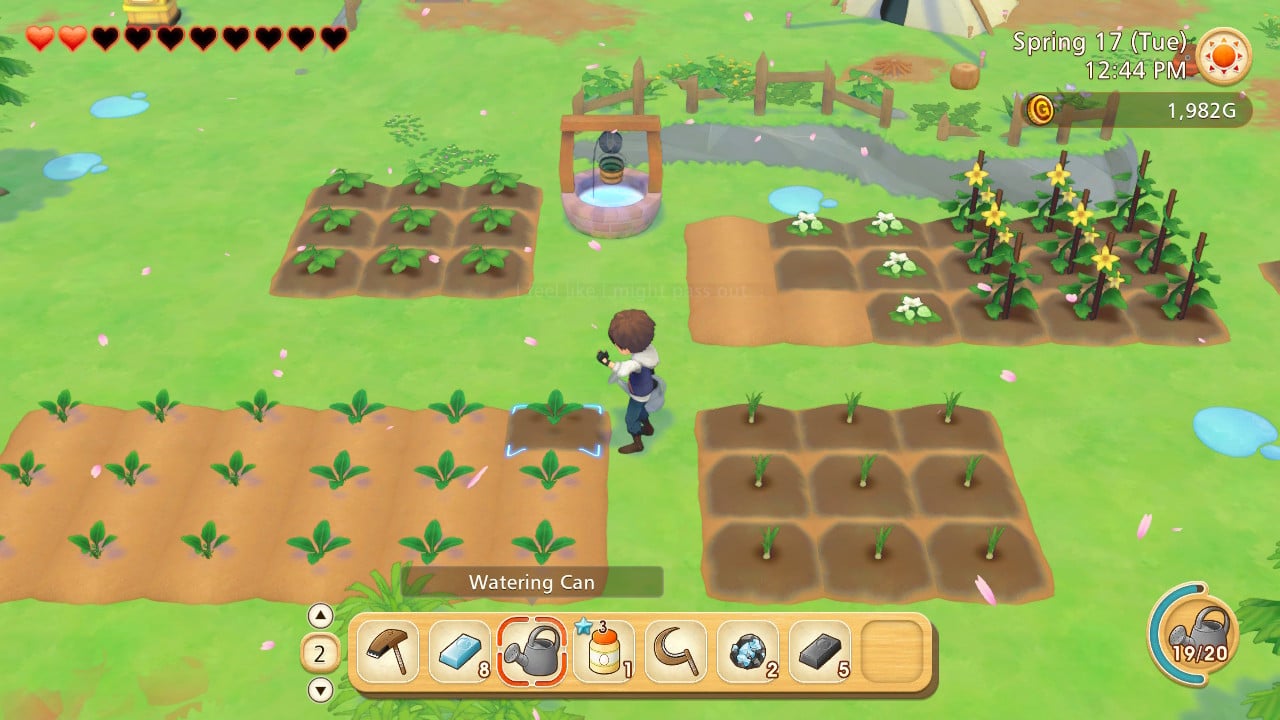
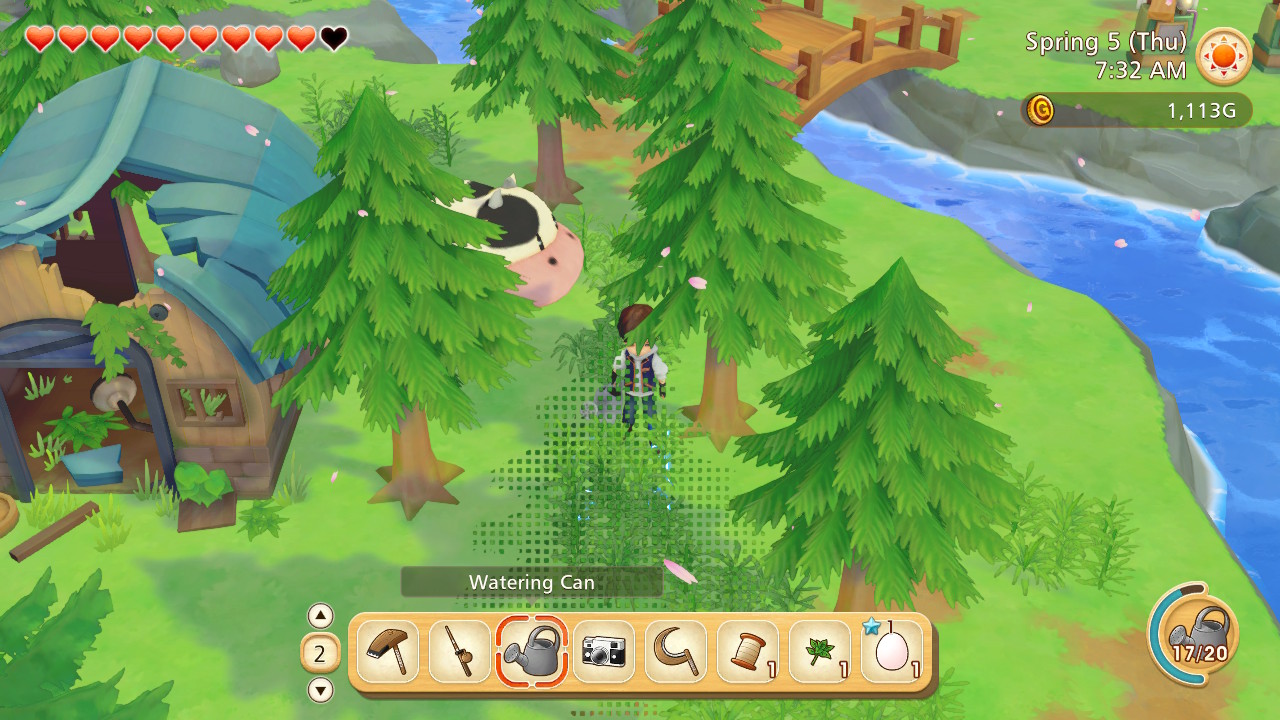
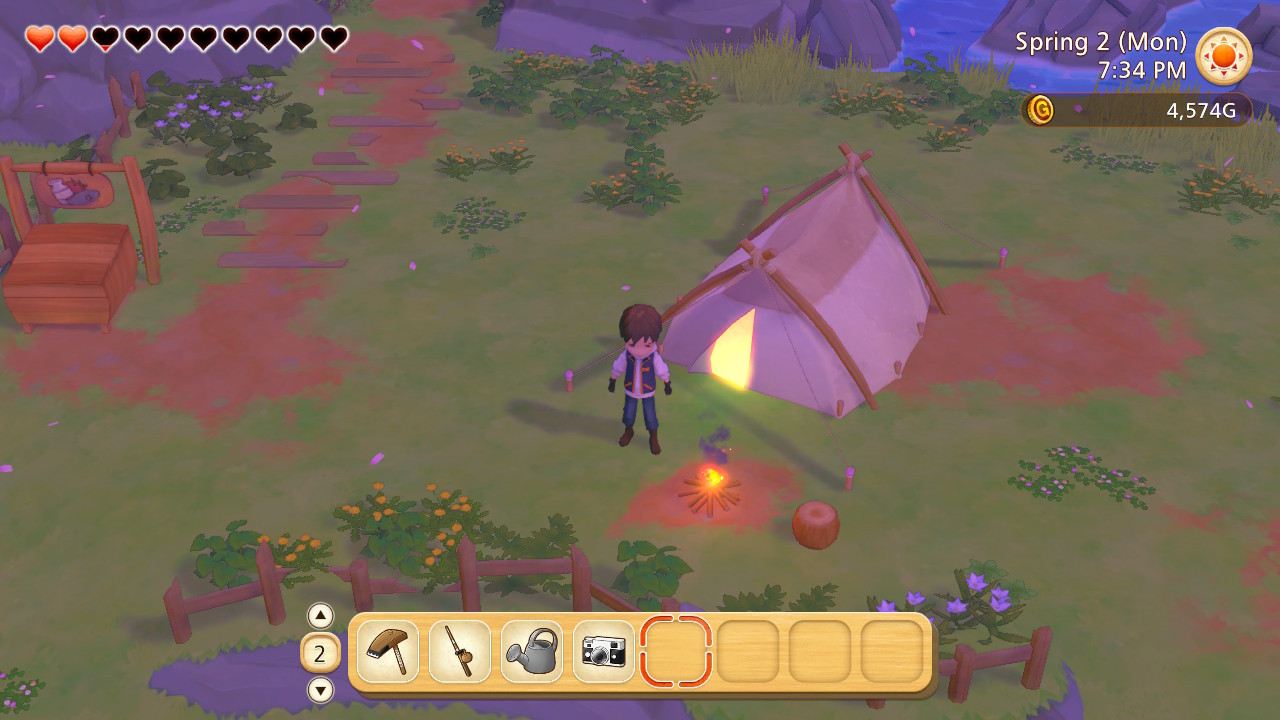
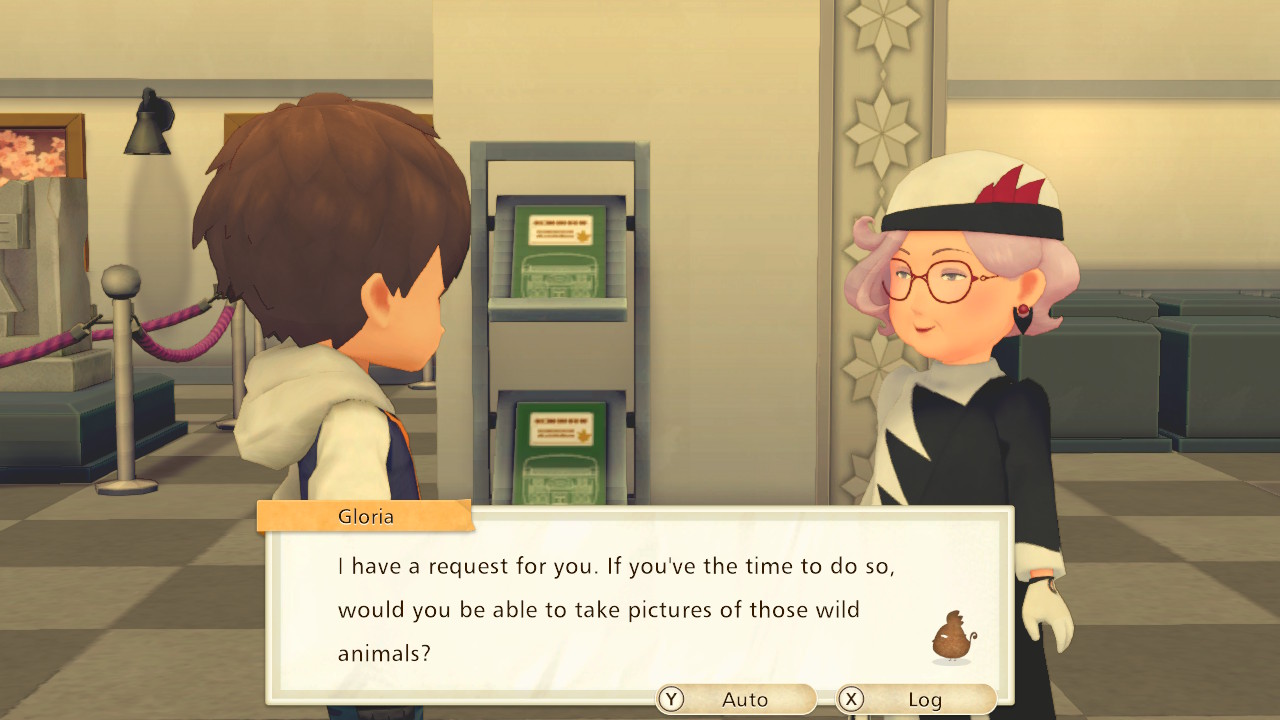
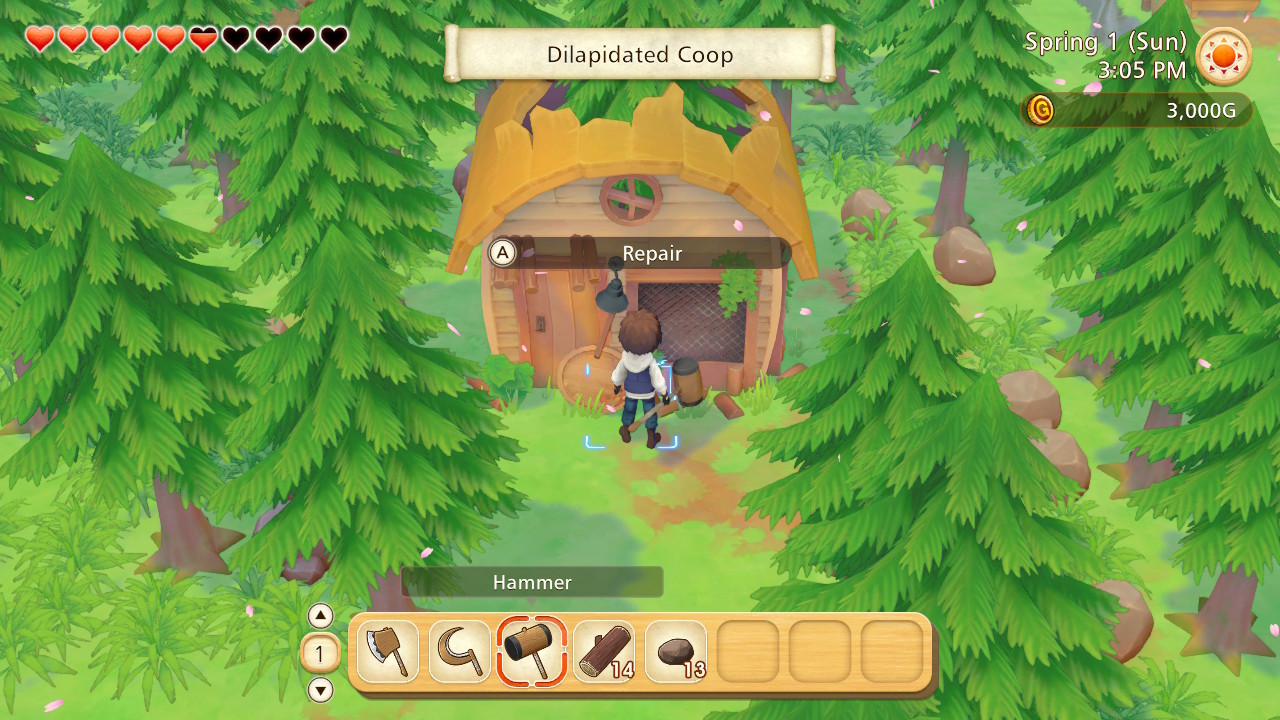
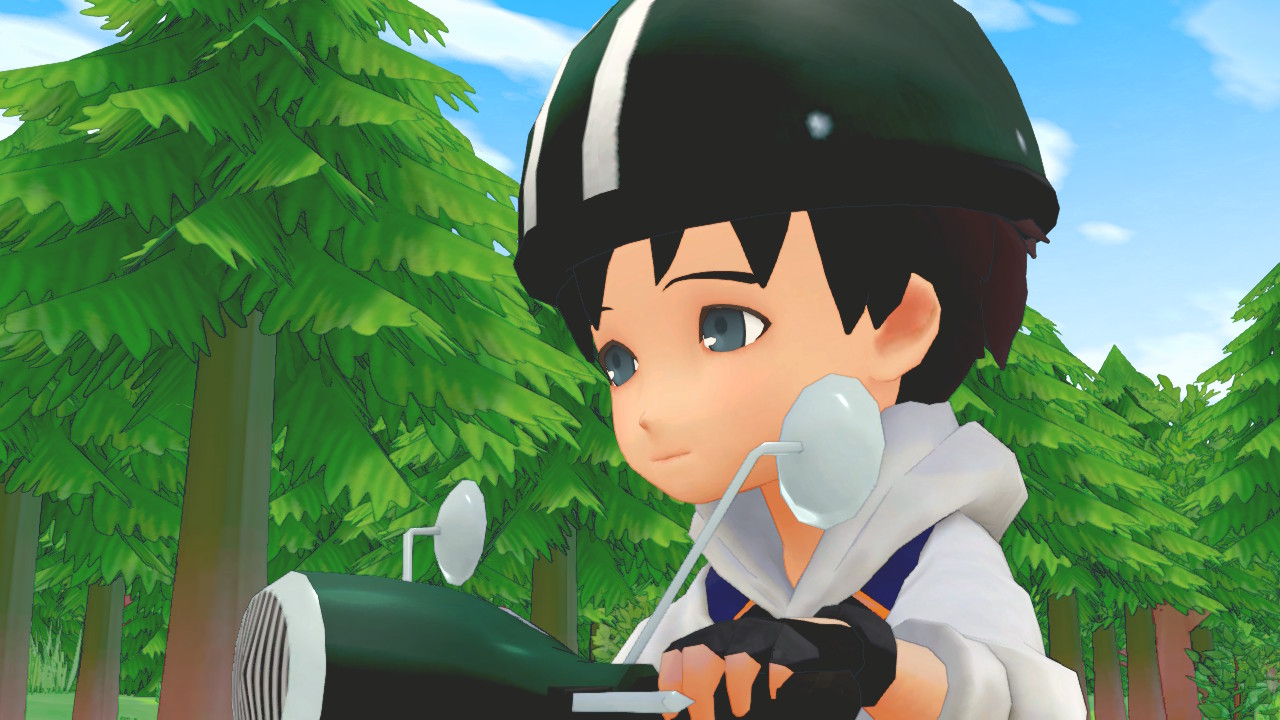





Published: Mar 1, 2021 01:39 pm